“Escaping Libya’s Detention Industry”
“Using 3D digital modelling and satellite imagery, in collaboration with Lawyers for Justice in Libya and supported by Forensic Architecture, we interviewed survivors of the brutal network of detention centres, as well as local experts. Their testimonies reveal the evolution of Libya’s ‘detention industry”.
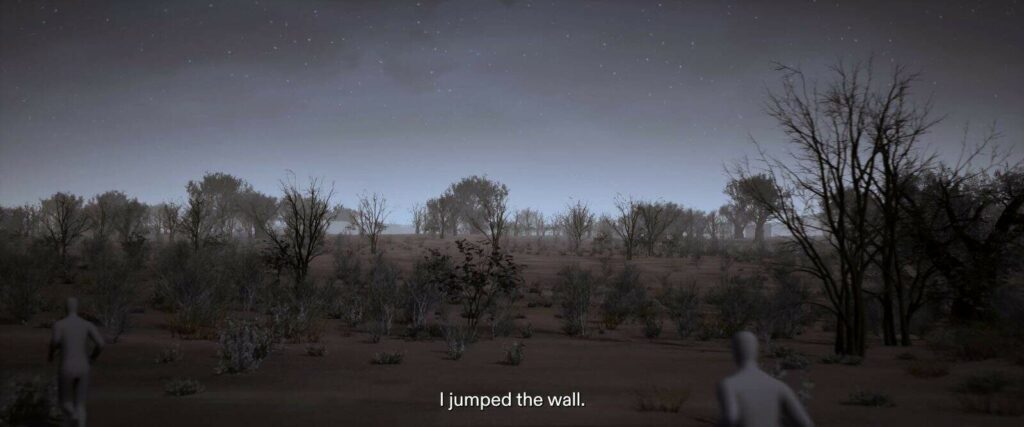
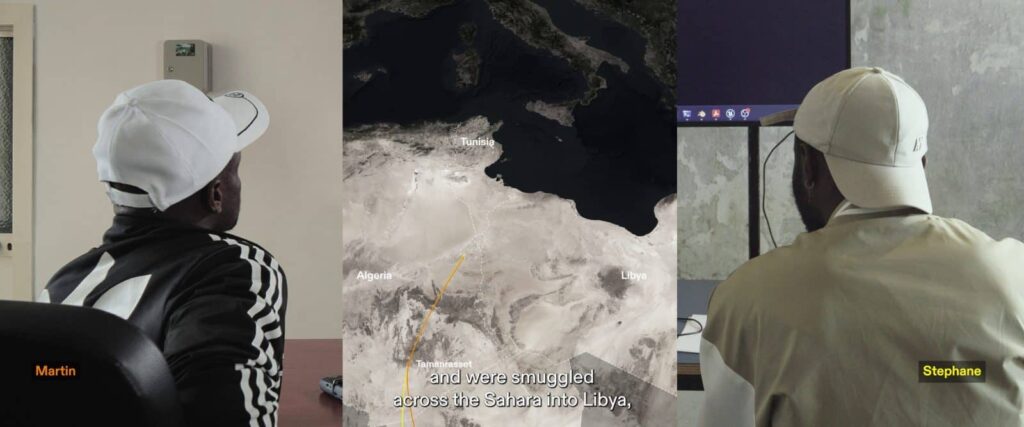
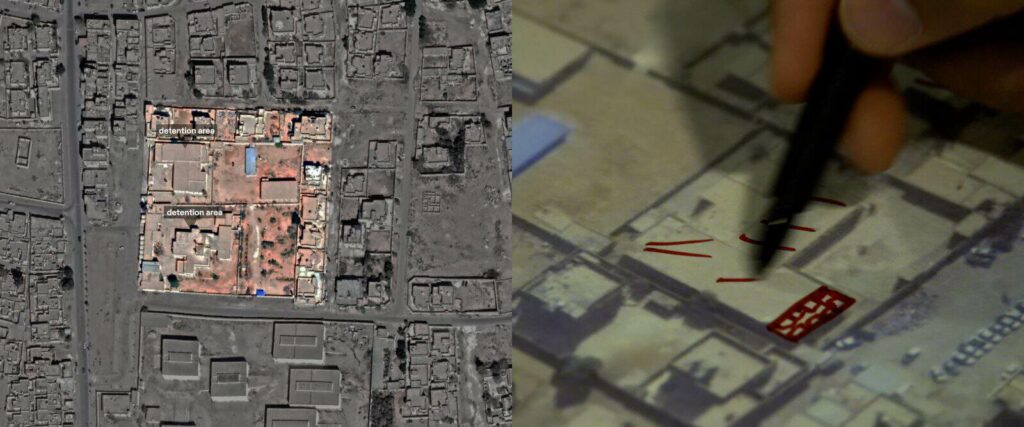
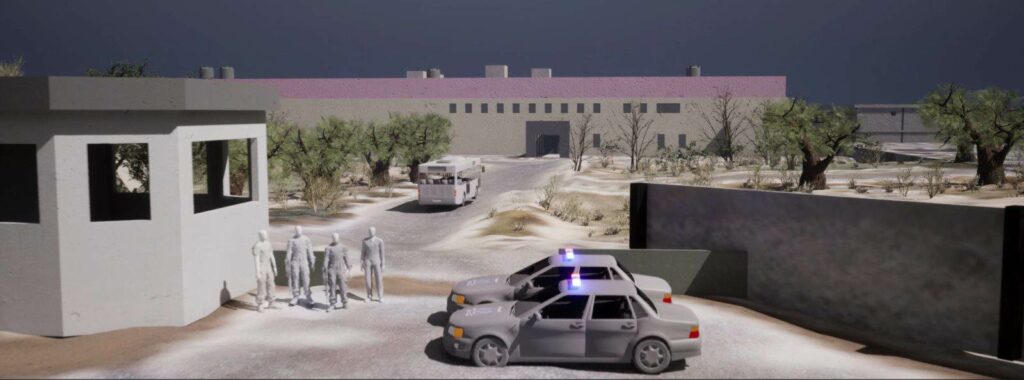
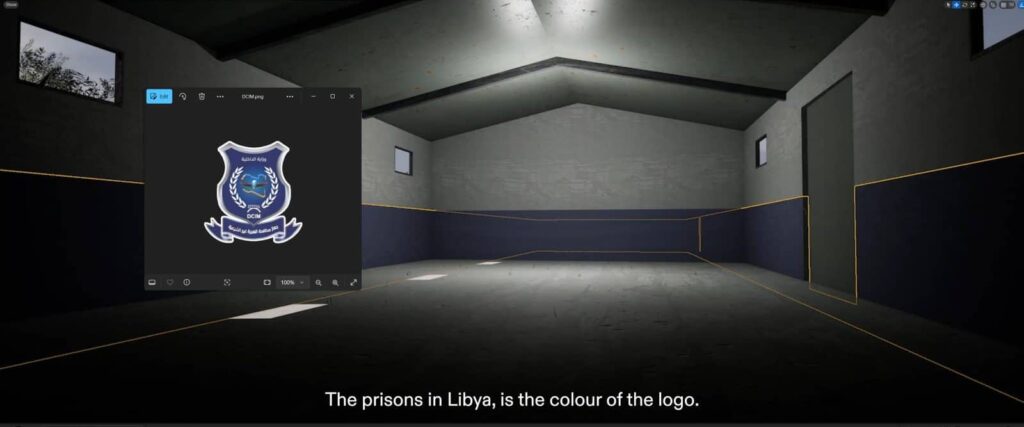

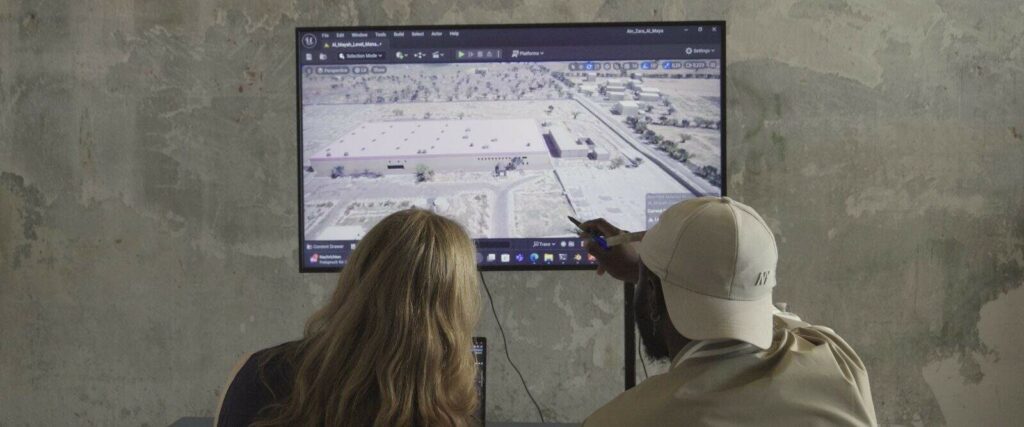
WATCH TEH FULL VIDEO HERE: https://forensic-architecture.org
Since the collapse of the regime of Muammar Gaddafi in 2011, Libya has been a key transit country for refugees and migrants seeking to cross the Mediterranean and reach Europe. In the political and economic vacuum which followed the uprising and the collapse of Gaddafi’s state, smuggling and trafficking expanded, upending the patchwork of agreements by which Europe sought to close its southern maritime borders.
By 2015, EU migration policy increasingly focused on ‘externalisation’ of its borders, preventing refugees and migrants from crossing the Mediterranean through deals with states including Libya. EU agencies and member states sought to support and equip Libyan actors to prevent crossings, as well as supporting state-affiliated detention centres, where refugees and migrants would be taken.
Libya has no refugee law, and no asylum system. As a result, refugees and migrants are automatically illegalised, and can be subjected to indefinite detention in centres like Al Mayah and Ain Zara.
CREDITS:
Forensis
Project Coordinator Phoebe Walton
Research Celina Abba Georgia Skartadou
Project Supervision Stefanos Levidis
Project Support Veronika Rau
Forensic Architecture
Researcher-in-Charge Robert Trafford
Lawyers for Justice in Libya
Project Lead Mehdi Ben Youssef
Project Support Serena Zanirato Merna Nasralla
Project and Communications Support Alexandra Azua
Extended Team
Videographers Nicholas Ferguson-Lee, David Gibilisco, Dario Di Liberti
Video Assistant Emmanuele Calautti
Video Editor and Sound Designer Sina Salimi
Interpreter Louis N. Benjamin Ndong
Interpreter and logistical support Farah Abou El Sel
Translator Sarah Le Guillou
Research Assistance Aimée Johnson